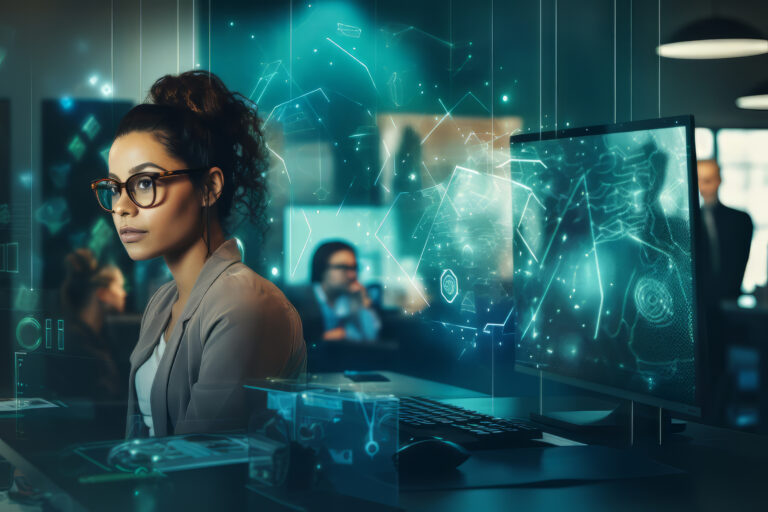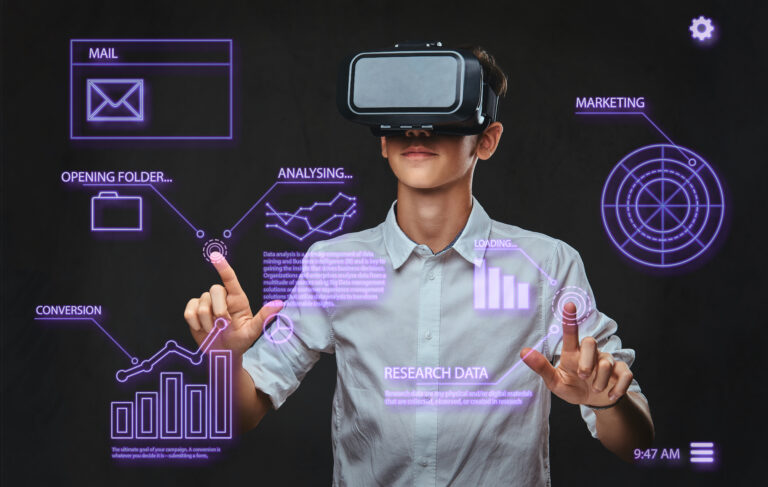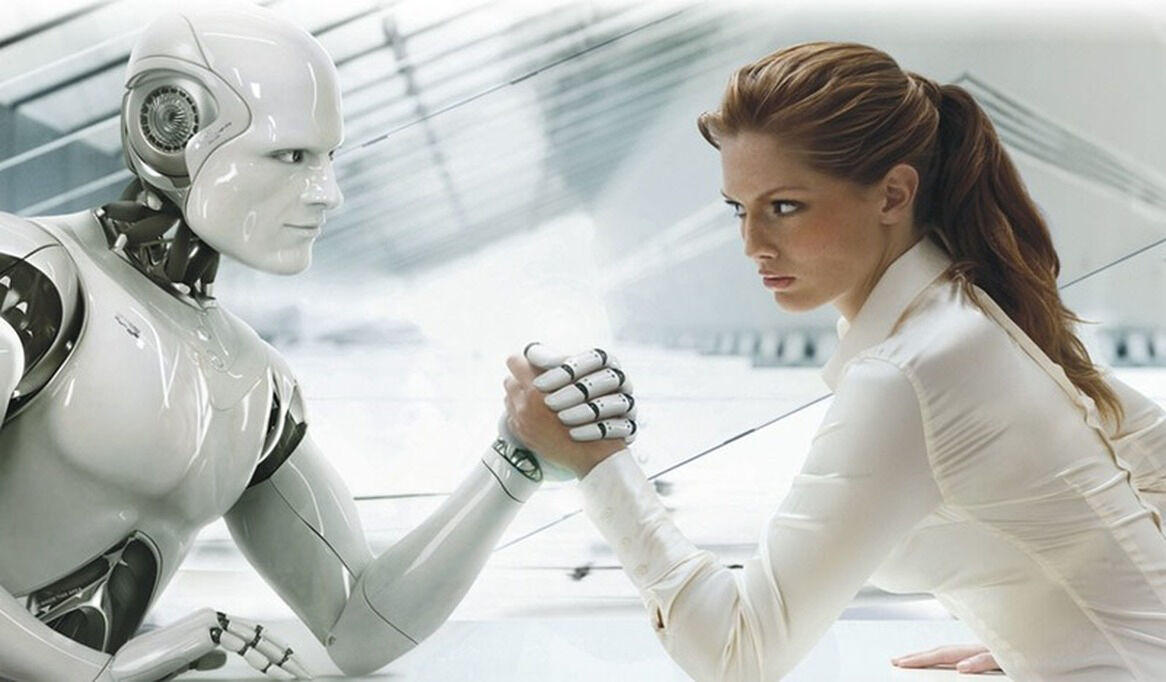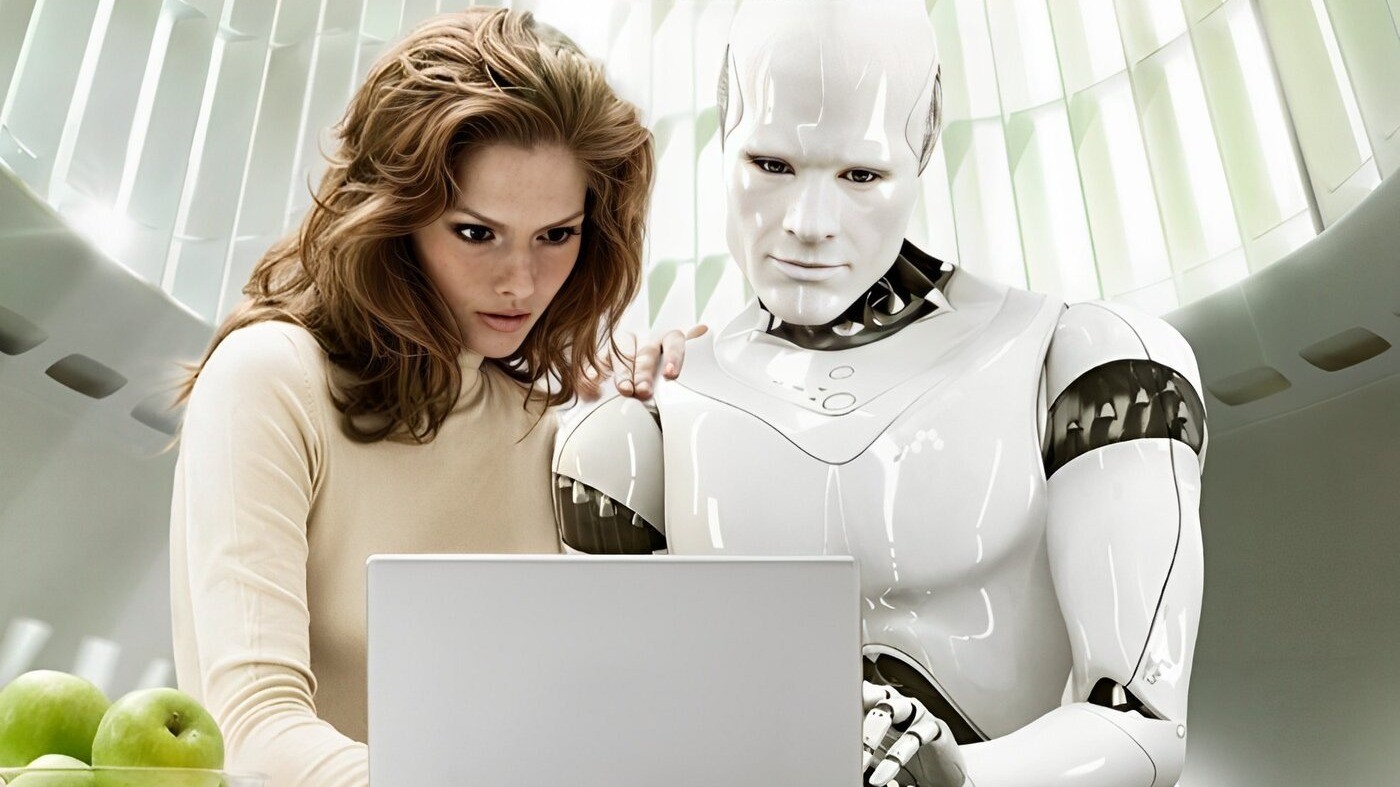We live in an era of digital transformation , where Artificial Intelligence (AI) is revolutionizing every aspect of our society. With each technological advancement comes the fear that automation and sophisticated algorithms will replace human professionals, stealing jobs and drastically changing the labor market. If you’ve ever wondered whether AI can really take your place, get ready: the answer is complex, scary and, above all, a call to action!
The Emergence and Evolution of Artificial Intelligence
AI didn’t just emerge out of nowhere. Its roots can be traced back to the earliest research in computing and logic in the last century. From early experiments to the advanced technologies we have today, the evolution of AI can be divided into a few key phases:
- Beginnings and Research: In the 1950s and 1960s, computer pioneers dreamed of machines that could simulate human reasoning. Although the first systems were rudimentary, they laid the foundation for what would become Artificial Intelligence .
- Algorithm Development: Over the years, increasingly sophisticated algorithms have emerged capable of recognizing patterns, learning from data, and performing specific tasks with high efficiency.
- Age of Automation: Today, AI is integrated into countless applications, from analyzing large volumes of data to automating processes in sectors such as manufacturing , finance and customer service . This transformation not only optimizes processes, but also creates new dynamics in the job market.
The Impact of AI on the Job Market
Automation and Task Replacement
There’s no denying it: automation is already replacing many repetitive and operational tasks. Robots and intelligent systems perform tasks with speed and precision that often surpass human capabilities. In sectors such as manufacturing and logistics , machines work 24 hours a day, reducing costs and increasing productivity . But does this mean that jobs are doomed?
Creation of New Jobs and Opportunities
While some roles are becoming obsolete, the same revolution is creating new jobs. The demand for professionals specializing in AI , machine learning , big data , and cybersecurity is on the rise. This shift creates opportunities for those who adapt and invest in training . Rather than viewing technology as a threat, many experts see AI as a tool that can enhance human creativity and efficiency.
Reinventing Work in the Digital Age
Digital transformation requires professionals to rethink their careers. Skills that were once valued may no longer be enough to stand out in a technology-dominated environment. Human-machine collaboration is the new paradigm: repetitive tasks can be automated, but creativity, empathy, and the ability to solve complex problems remain unique to humans. The key to success is continuous adaptation and the pursuit of new knowledge.
Myths vs. Realities: Will AI Steal Your Job?
Myth 1: AI Will Replace All Jobs
Reality: While AI can automate many tasks, it cannot replace all jobs. Jobs that rely on creativity , empathy , and intuition are unlikely to be replicated by algorithms. What we are seeing is a transformation: repetitive jobs are eliminated, but new jobs that require more sophisticated interaction with technology emerge in their place.
Myth 2: Only Low-Skilled Workers Are at Risk
Reality: The idea that only operational jobs are at risk is simplistic. Professionals in a variety of fields—including finance , marketing , and even law —are feeling the pressure to upgrade and integrate AI into their routines. Continuous training is essential for everyone, regardless of their level of expertise.
Myth 3: AI is an Existential Threat to Humanity
Reality: The vision of a dystopian future in which machines dominate and subjugate humans is popular in movies and books, but it has little to do with practical reality. Most AI systems are designed to assist and optimize processes, not to compete with humans in terms of creativity or ethical decision-making.
Myth 4: There is no way to prepare for the AI revolution
Reality: While the transformation is rapid, there are many ways to adapt. Investing in education , attending training sessions, and pursuing continuous learning are essential. The internet offers free courses and communities of professionals who share knowledge about the latest trends in AI .
Practical Examples of the Impact of AI
Industrial and Manufacturing Sector
In industry , automation is already a consolidated reality. Industrial robots perform assembly and inspection tasks with precision, allowing factories to operate more efficiently. Despite the reduction in the number of workers, there is a growing demand for specialized technicians capable of operating and maintaining these intelligent systems.
Customer service
The customer service industry is another prime example. AI- powered chatbots and virtual assistants are able to answer frequently asked questions, troubleshoot basic issues, and escalate more complex cases to humans. This integration not only improves the user experience, but also challenges support professionals to develop skills to handle issues that require a human touch.
Finance and Banking
In the financial sector, AI algorithms are revolutionizing risk analysis, fraud detection, and service personalization. Machine learning systems can process data in real time, allowing banks and financial institutions to make fast and accurate decisions. However, this automation also requires professionals in the sector to update themselves and learn how to interpret the insights generated by the algorithms.
Health and Medical Diagnosis
In healthcare, AI is transforming diagnosis and treatment. Tools that analyze medical images can detect signs of disease more accurately than some traditional methods. This does not mean that doctors will be replaced; on the contrary, they now have tools at their disposal that help them make more informed decisions, improving the quality of care.
Personalized Education and Learning
AI is also revolutionizing education. Personalized learning platforms, which use algorithms to adapt content according to the pace and needs of each student, are gaining ground. This approach not only optimizes the learning process, but also highlights the importance of continuous learning in a constantly evolving world.
Ethical and Social Challenges of AI in the Job Market
Despite the numerous advantages, the massive integration of AI into the job market raises ethical and social issues that need to be addressed:
Inequality and Access to Technology
The AI revolution could, if not managed well, increase social disparities. Professionals who have access to training and technological resources tend to benefit, while those who are left out may face difficulties in adapting. It is essential that governments and companies invest in education and training , democratizing access to new technologies.
Data Privacy and Security
With the increasing collection and analysis of data, concerns about privacy and security arise . Personal and professional information can be collected, stored and analyzed by AI systems , which raises the need for strict regulations to protect citizens. Transparency in the use of data is essential to prevent abuse and ensure public trust.
Responsibility and Decision Making
When an AI system makes a mistake, accountability can become blurred. Clear rules need to be established about who is responsible for errors or misjudgments. Companies and governments must work together to create auditing and oversight mechanisms to ensure that the technology is used ethically and responsibly.
Preparing for the Future: Training and Adaptation
Faced with so many changes, the best strategy is to invest in training and continuous learning . Here are some essential tips to stay relevant in the market:
Invest in Education
Look for courses, workshops, and training in AI , machine learning , and related areas. Online platforms, often free or low-cost, offer a variety of resources that can transform your career. Knowledge is your greatest weapon in facing the changes brought about by automation.
Develop Uniquely Human Skills
While algorithms can replace repetitive tasks, skills like creativity , empathy , and critical thinking remain unique to humans. Work on developing these skills, as they will be essential to excel in an increasingly automated environment.
Embrace AI Tools
Try using automation tools and virtual assistants in your day-to-day work. This familiarity will not only increase your productivity , but it will also help you understand how these technologies can be integrated into your work.
Connect with Communities and Knowledge Networks
Participating in technology and AI- related groups, forums, and events can open doors and provide valuable opportunities for you to share your experiences. Collaboration and networking are essential to staying up to date and finding opportunities in a constantly evolving market.
The Future of Work in the Age of AI
Hybridization Between Humans and Machines
One of the main trends for the future is the hybridization of functions. Instead of seeing AI as a replacement for human work, what is envisioned is a collaboration where humans and machines complement each other. While automated systems perform repetitive tasks, people will be able to focus on strategic and creative functions, enhancing overall performance.
New Job Models and Opportunities
The digital revolution is also redefining work models. Remote work , for example, has become established and is set to expand, thanks to connectivity and AI- based collaboration tools . This shift opens up new possibilities for professionals from different regions and cultures, enabling global integration that previously seemed distant.
The Emergence of New Professions
As AI becomes ubiquitous, new roles and specialized professions will emerge. From big data analysts to machine learning engineers and cybersecurity experts , the market will demand professionals who are skilled at developing, managing, and improving these technologies. This transformation creates a landscape where continuous learning is essential.
The Dark Side: Risks and Uncertainties
Despite all the opportunities, it is important to recognize the risks involved in the mass adoption of AI :
Technological Substitution and Unemployment
The replacement of operational functions by AI is a reality that can generate technological unemployment in certain sectors. Professionals who do not adapt may find it difficult to re-enter the market. This transition can be painful, especially for those who have not had access to training and skills development resources .
Concentration of Power and Ethical Risks
The dominance of AI technologies by large corporations could lead to an unprecedented concentration of power. If there is no proper regulation, this scenario could result in unethical practices, abuse of power, and even greater disparity between different segments of society. Transparency and accountability in the use of technology are issues that need to be discussed and implemented urgently.
Data Insecurity and Vulnerability
With the advancement of AI , the amount of data generated and processed increases exponentially. This mass of information, if not properly protected, can become a target for cyberattacks, compromising the privacy and security of both individuals and organizations.
The Time to Act is Now!
Given this scenario full of challenges and opportunities, the message is clear: the future of work has already begun, and the only way to avoid being left behind is to adapt. The AI revolution waits for no one, and those who invest in training , continuous learning and innovation will be prepared to seize the opportunities that arise.
Strategies to Avoid Being Surprised by Automation
- Constantly Educate Yourself: Stay up to date with the latest trends and technologies. Courses, webinars, and books on AI and digital transformation are essential investments.
- Develop Unique Skills: Invest in skills that machines can’t replicate, such as creativity , empathy , and complex problem-solving .
- Incorporate Technology into Your Work: Use automation tools and virtual assistants to increase your productivity and familiarize yourself with emerging technologies.
- Build a Network: Participate in events, forums and specialized groups. Exchanging experiences can open doors and offer new perspectives.
- Be Proactive in Adapting: Don’t wait for change to happen. Seek to understand how AI can impact your industry and look for ways to differentiate yourself in the market.
Rise to the Challenge or Get Left Behind!
The question “Will Artificial Intelligence Steal Your Job?” is a warning about the new paradigm of the job market. While AI can automate many functions, it also offers transformative potential for those who know how to adapt. The future belongs to the proactive , those who see technology not as a threat, but as a tool to boost their careers and create new opportunities.
This is not an apocalyptic scenario, but a revolution that demands immediate action. Every minute that passes is a chance to learn, evolve and prepare for the new world of work. The transformation is in your hands: you can choose to update yourself, invest in training and position yourself as an indispensable professional, or run the risk of being replaced by automation .
The truth is that the world is changing and Artificial Intelligence is already a reality. Professionals who adapt to this new era will not only survive, but thrive, transforming challenges into opportunities . The choice is yours: be ahead or fall behind. Remember, knowledge is the key to success, and AI can be your greatest ally if you know how to use it to your advantage.
Did you like this article? Share it with colleagues, discuss it with friends and leave your comment. Discussing the impact of Artificial Intelligence on the job market is essential for us to build a future where technology and human talent walk together towards a better world. Prepare yourself, empower yourself and be the protagonist of your own revolution!
The future of work is constantly changing. While some jobs will be automated, others will emerge to meet new market demands. The challenge is great, but the opportunities are even greater. Invest in yourself, learn about AI , and be part of the revolution that is already shaping the world of work. After all, Artificial Intelligence doesn’t wait, and the time to act is now!
This is the new landscape: a hybrid environment where humans and machines collaborate to create innovative solutions and transform challenges into successes. Don’t let the fear of automation paralyze your potential. Embrace change, learn and evolve – because the future waits for no one!
With the rise of automation , the professional world is reinventing itself. Companies that invest in technology and innovation are reaping the rewards of unprecedented productivity, while professionals who adapt to this new reality enjoy more dynamic and challenging careers. So, if you’re still wondering if AI will steal your job, the answer is simple: it can, but only if you don’t prepare for the future!
Stay tuned to trends, invest in your knowledge and always be ready to reinvent yourself. The world of work in the 21st century belongs to those who face the Artificial Intelligence revolution head on, transforming the threat into an opportunity for growth and success.
Share this article and help spread awareness about the importance of adapting to the new digital age. The future is now, and the time to act is now!
I hope this content has clarified the challenges and opportunities brought by AI . Prepare yourself, empower yourself and don’t let automation catch you off guard – the future of your job depends on your choices today!








